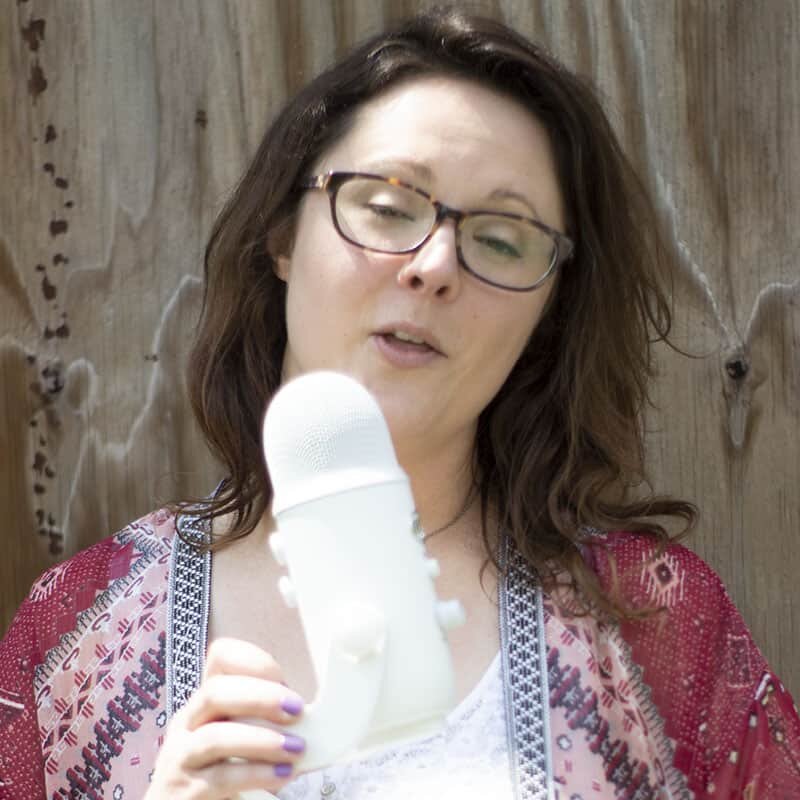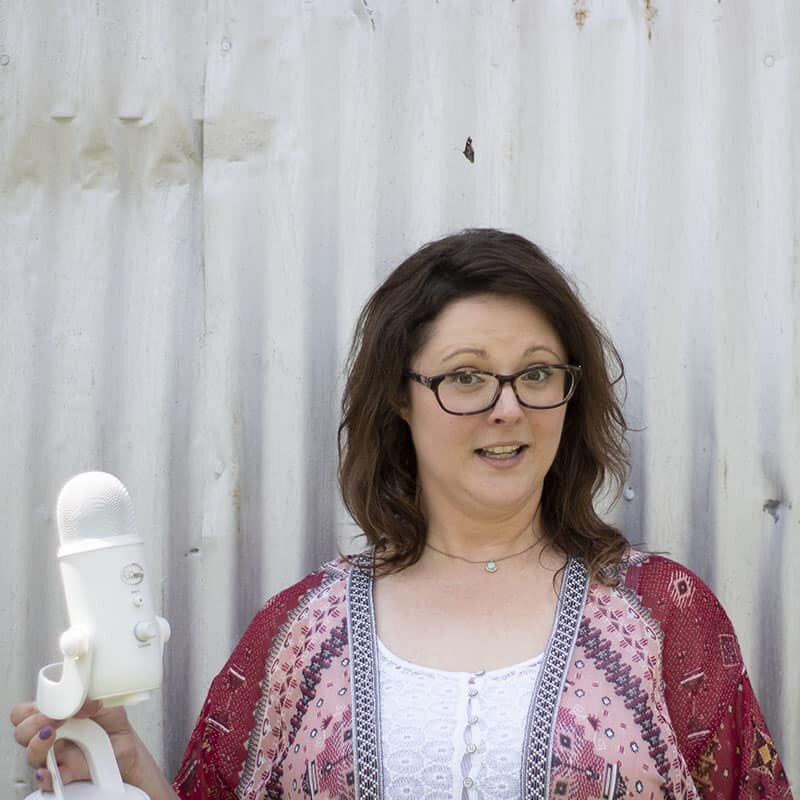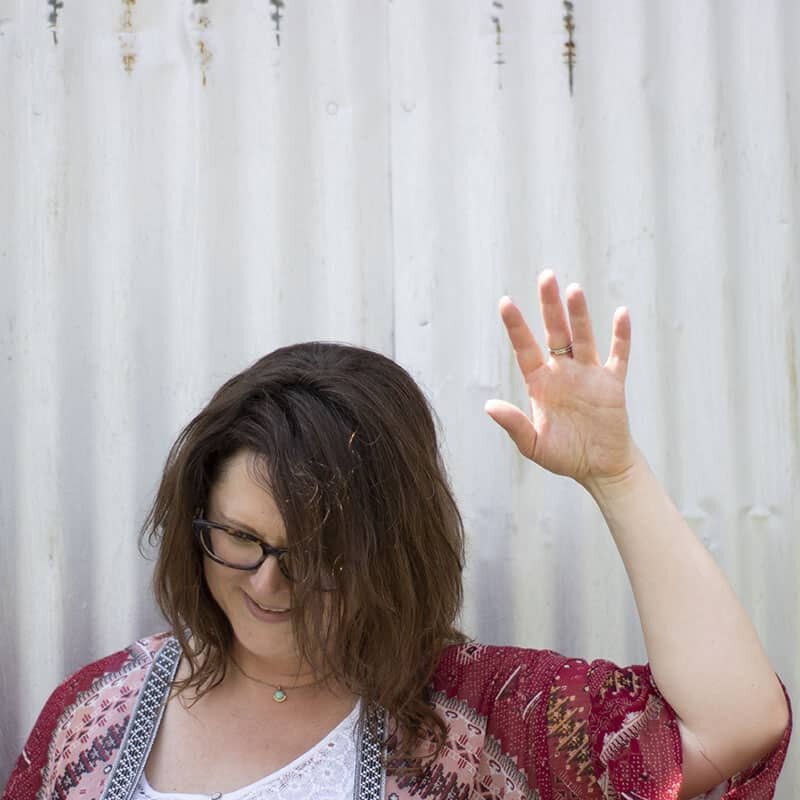The Pitfalls of Positive Thinking
Article 6 of 8
There was a time in my life when I labeled myself as a pessimist. Can you even believe it?
It wasn’t until I stopped listening to my family (and I love them dearly, for real, but sometimes you have to ignore loaded labels your family gives you) and started listening to a wonderful friend who told me I was an optimist, that I actually started seeing the optimist in myself. But it’s always been there.
I’ve since learned that external validation isn’t needed to know who and what you are. But in this case, the external validation helped me break a limiting belief.
I am an optimist. There’s no doubt about it.
Even though I considered myself a pessimist for the first two-thirds of my life, in my life, looking for the silver lining to help other people feel better has always been a thing that just naturally happened. I’m not going to place a judgement on that statement here - it just is. There are times finding the silver lining has come in really handy, and there are also times it’s had me sticking a big ol’ foot in my mouth because the silver lining just came out allll wrong.
OMG, Positive Thinking Backfired - Wait, No it Didn’t
Like once, a chick I worked with was self conscious about her weight, even though she was perfectly beautiful regardless of what it was. (By the way, she was thin and fit).
We were cramming into the back seat of a car to go to lunch. Of course there were too many of us to fit, so one person had to lay on top of those of us who got into the backseat. (I don’t advise this now, ha! Wear your seatbelt.)
But, as the chickadee climbed in, she made a comment about how she was bigger than all of us and should probably not be the one on top. Just being my younger, less filtered self, I immediately said, “Well, all together, we’re much bigger than you, so it’ll be fine.”
The entire car load fell silent as she looked at me and climbed in. Awkward!
Back then, I was slower to know how to fix a foot-in-the-mouth situation like that, so I didn’t say anything else. I’d said enough already, right? Now, I’m much quicker (not always) to speak up and say, “I didn’t mean it like that. I’m sorry!”
This scenario of the car load perceiving me of reinforcing the belief that this chick was big haunted me for a while. I wanted to apologize over the years. I wanted to write her and be friendly. I wanted her to forget it ever happened. Instead, I just prayed about it.
It ended up being quite the lesson, but shaped how I moved forward with others. So let’s get all philosophical for a minute and dissect the situation to see the silver lining.
The Silver Lining
At the time, I didn’t realize that her perception of what I was saying was influenced by her own insecurities. (No judgement here - just a fact.)
Regardless, I still could have been more sensitive - I could have recognized her insecurity and used that information to craft my response, if I felt so led. For example, I could have skipped the out loud positive thinking and said, “Aw, c’mon and get in!” But, that’s not required.
We’re going to make mistakes. And we’re going to unintentionally hurt the feelings of humans we love.
The silver lining is that I didn’t like what went down enough to actively work toward fixing it going forward. And I hope she did too, in terms of her self esteem.
Lessons I learned About External Validation
The lessons I learned about external validation revolve around being the external validation for someone else and also relying on external validation from other people. It’s a two-way street, based on the assumption that interactions are good natured. If an interaction is malicious, that’s a whole different story for another day.
It’s not our responsibility to raise the self esteem of another person, even if we should not actively try to hurt it. In fact, we can’t raise the self esteem of another person. While we can boost it temporarily, that self esteem comes from within.
If you care about someone and want to help them feel better about something and use your own positive nature to try to do that, that’s also okay. You can pick and choose where your energy goes. Choose wisely.
External validation isn’t where our knowing of our own worth, value, and beauty comes from, and if we’re not right on the inside about our own worth, then external factors, such as people sticking their feet in our mouths, can be perceived as reinforcing the other person’s internal limiting belief.
Regardless of others’ perceptions that aren’t aligned with your intentions, if you stick your foot in your mouth, it’s okay to immediately speak up and say, “I didn’t mean it that way, I’m sorry.”
People’s perceptions of your actions and words will likely be misaligned with your true intentions a lot. This is by design because by the very nature of living in our own universes (our bodies) which physically separate us from experiencing first-hand another human’s reality, we can only make educated guesses and use intuition to know how another means to be or is.
Ultimately, it’s okay to care about people, but don’t let what they think bother you. That’s easier said than done, for sure. A true connection with another human is fantastic, but we’re designed to not all think the same way and different things fulfill us in different ways.
So constantly changing to please what other people think puts you in a negative place where you lose pieces of yourself and it becomes harder and harder to think positively.
Why Positive Thinking?
As humans, we all have experiences with external opinions, pressures, validation, and forces that are beyond our control. How we choose to react is within our control. How we react can be influenced by whether we’re in a positive or negative state of mind.
Looking for opportunities and lessons that you’ve been given as gifts to grow and evolve just keeps us humans in a better state of mind and existence than thinking that bad things are happening to us all the time. So, shifting your mindset to gratitude rather than living in a place of scarcity, really does help us feel more fulfilled and happier.
Obviously, there are some circumstances that happen in life that are harder to deal with than others, but we’ll get into dealing with negative emotions and negativity in general further down in the article. For now, it’s important to know that you have control over your own mindset, your own reactions, and how you want to live your life.
Even if you think you’re stuck or you can’t be completely true to who you are because society says so - positive thinking can help you realize that’s not true.
The sky really is the limit when it comes to what you can do, who you are, and what you’re capable of. Positive thinking requires you to dip into creativity and imagination. Positive thinking asks you to be intentional.
What Is Positive Thinking?
Positive thinking is intentionally tailoring your thoughts to focus on the positive rather than the negative. Focus on what you want rather than what you don’t want. Focus on the good rather than the bad.
This doesn’t mean you can’t acknowledge the bad things that happen, the pain you go through, etc. To the contrary, you must acknowledge these things and feel the very real and big emotions to be healthy and release them. Suppressing the negative causes harmful mental and physical ailments.
But, positive thinking helps you harness the lessons from hard experiences so you can progress in a productive and loving way - it helps you love yourself and others more. It helps you attract more love into your life.
What Positive Thinking Is Not
Positive thinking isn’t the end all be all.
Positive thinking isn’t something you can sustain 100% of the time.
Positive thinking isn’t going into an experience or coming out of an experience blind to reality.
It’s being okay with changing course as needed, learning the lessons that come from mistakes a long the way, and accepting yourself for who you are.
Dealing with the Nasty
The opposite of positive thinking is negative thinking.
Complaining and venting actually changes your brain and is bad for your health.
Is it possible to never feel negative emotions? No. But it is possible to choose to react constructively rather than destructively. Do this by recognizing the emotions you feel are not you. They are feelings that you have - each different in their own right that combine to make up your emotional state.
Feelings change. Emotions change. Circumstances that elicit certain emotions or feelings change.
The more you complain and vent, the more likely you are to keep complaining and venting. This leads to rumination. And rumination sucks so bad. It keeps us in negative cycles too. The hole just keeps getting deeper and harder to climb out of.
Hard Relationships
Dealing with the nasty can be really hard too, even if you’re not in a negative downward spiral. Things that a lot of us have been through that are really freaking hard:
Divorce
Single parenting
Losing friends
Losing family
Losing pets
Being fired or laid off
Abuse and other forms of trauma
You’ve had a strained relationship with Mom your whole life? Your dad left for a pack of smokes and never came back?
In the case of Mom, you’ve lost what you think having a mom should be like. Sometimes, grief is very real even if comes because of unmet expectations. Sometimes, loss is thrust upon you without a choice.
You have a right to grieve the loss of those relationships or experiences. In fact, you should grieve, so you can let go and move on.
Ask yourself what is it that is causing the emotion? What’s the trigger? Why is the trigger the trigger?
Ask the questions and learn something about yourself. Recognize what’s not right for you so you can make changes for your own best interest. Then you can be healthy. Then you can climb out of the hole.
You can start using positive thinking even when you’re stuck right in the nasty. You can know that the emotions you’re feeling are real, there for a reason, you can process that reason, and it’ll help you come out of the nasty better off than you were before. That’s positive thinking.
Hard Situations
Avoid assumptions and snap judgements. Period.
There’s a difference between feeling and processing your emotions to move on and dwelling in your emotions. That’s one end of the nasty spectrum. The other end is seemingly more innocuous and involves decision making and innovation at work, school, or in life and society. So, on that end, there’s a difference between looking at a situation or plan holistically to determine its worth versus writing a situation, plan, or person off because you just think it won’t work out.
Determining how a situation or plan fits in with the bigger picture, noting its strengths and weaknesses, and then evaluating if overcoming its obstacles are worth the expense is a great way to logically get to an answer rather than making a snap judgement.
If you write off a plan as a failure, you’re likely to not even try. If you don’t even try, your plan is destined to fail, regardless of what could have been.
If you try a plan or situation and it doesn’t work out, what’d you learn?
How did what you learn help you be a better human?
To be cliche, it really is about the journey. So, stop complaining and start making changes. Positive thinking helps with that.
How Positive Thinking Helps You Find Your Purpose
When combined with the other 6 helpful habits for finding your purpose, positive thinking helps you notice where your fulfillment lies. If you practice positive thinking, over time, you eventually start to notice feeling good rather than feeling bad and things you love about people or yourself rather than things you hate. You see the pattern.
When you exist in this natural mindset, you can more easily see the right path - filled with what brings you joy and helps you thrive - rather than the wrong path - filled with obstacles and hardships.
Obstacles and hardships will still exist, but your ability to enjoy them and be grateful for them will grow, making life so much more fun!
What have you experienced lately that challenged you, but you were grateful for? Let me know in the comments!
Love,






